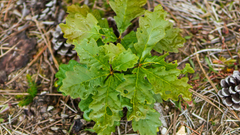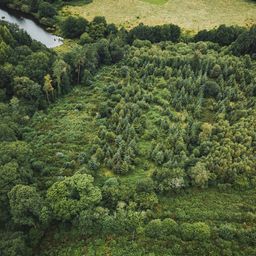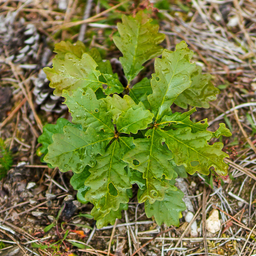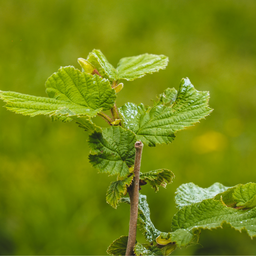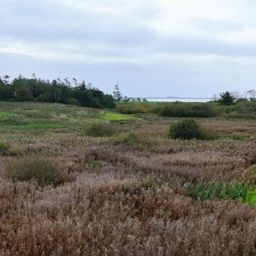Jul 25, 2023
Understanding and Addressing Eco-Anxiety: A Call to Climate Action
Learn what eco-anxiety is, who it affects, and how to channel it towards impactful climate action.

In recent years, as our world grapples with the devastating impacts of climate change and the alarming consequences of human activity on the environment, a new and pressing psychological concern has emerged: eco-anxiety. Eco-anxiety is not a diagnosable mental disorder but rather an emotional and psychological fear that has taken hold of individuals, particularly young people, who witness the consequences of climate change and the apparent inaction to address it. In this blog post, we will delve into what eco-anxiety is, its underlying reasons, who it affects, and most importantly, how we can cope with this distress and channel it towards meaningful climate action.
Understanding Eco-Anxiety
Eco-anxiety can be described as an overwhelming concern about the current and future harm to the environment caused by human activities and climate change. It is often defined as “a chronic fear of environmental doom”. Many people, especially the younger generation, experience mental distress or anxiety, characterised by deep feelings of hopelessness and anger as they witness the adverse effects of climate change unfolding before their eyes. This deep-seated psychological impact has been attributed to the increased global awareness of the climate crisis and the perceived inaction of those in positions of power, leaving people feeling helpless about the future and the fate of humanity.
The Impact of Eco-Anxiety
Eco-anxiety is not an isolated phenomenon; it reveals startling rates of pessimism among people worldwide. It affects individuals of all ages, particularly the people experiencing the direct consequences of climate change and those with the most to lose in the face of environmental catastrophe. A study involving 10,000 people aged 16-25 across ten countries found that 92% of young individuals in the Philippines feel the future is frightening, compared to 56% in Finland. Certainly, people from the Philippines are more likely to be affected by climate change than in Finland, with there being higher risk of natural hazards. The gap is therefore understandable amongst different communities.
Coping with Eco-Anxiety
While the emotional burden of eco-anxiety is undeniable, it is essential to acknowledge these feelings and challenge them rather than suppress them. It is a rational response to the current state of our planet, as we face the possibility of heading towards a sixth mass extinction. The first step in coping with eco-anxiety is recognising that these trepidations are valid and shared by many others worldwide.
To turn eco-anxiety into positive action, people can channel these emotions into meaningful climate action. Each person can play a part, no matter the scale, in contributing to a more sustainable future. Whether it is educating ourselves, and on how to reduce personal carbon emissions, supporting renewable energy, participating in environmental activism, or advocating for change, every action counts. Additionally, speaking up about our concerns and expressing our care for the Earth’s future can encourage feelings of hope and empower others to take action.
Taking Collective Action
Addressing eco-anxiety requires collective efforts at both individual and societal levels. It is also crucial for governments and organisations to take responsibility and enact policies that promote sustainability and mitigate climate change's detrimental impacts. The best treatment for eco-anxiety is to take action and work together to protect the only planet we call home.
How You Can Start
Trees are the world’s second-largest carbon sink, the largest being oceans, which means they absorb and store carbon. Forests are also essential for Earth's biological diversity, which is why protecting them is crucial.
Here at EcoTree, we manage forests sustainably across Europe and make it easy for individuals and businesses to contribute through various offers. Read more about our unique approach to forestry or visit the treeShop to start your journey as a tree owner.
Sources:
- Coffey, Y., Bhullar, N., Durkin, J., Islam, M.S. and Usher, K., 2021. Understanding Eco-anxiety: A Systematic Scoping Review of Current Literature and Identified Knowledge Gaps [Online]. The Journal of Climate Change and Health [Online], 3(3), p.100047
- Collier, S., 2022. If climate change keeps you up at night, here’s how to cope [Online]. Harvard Health
- Gregory, A., 2021. ‘Eco-anxiety’: fear of environmental doom weighs on young people [Online]. the Guardian
- Hickman, C., Marks, E., Pihkala, P., Clayton, S., Lewandowski, R.E., Mayall, E.E., Wray, B., Mellor, C. and van Susteren, L., 2021. Climate anxiety in children and young people and their beliefs about government responses to climate change: a global survey [Online]. The Lancet Planetary Health [Online], 5(12)
- World Economic Forum, n.d. Eco-anxiety is a growing mental health crisis [Online]
- www.nhm.ac.uk, n.d. Eco-anxiety: how to cope at a time of climate crisis [Online]


